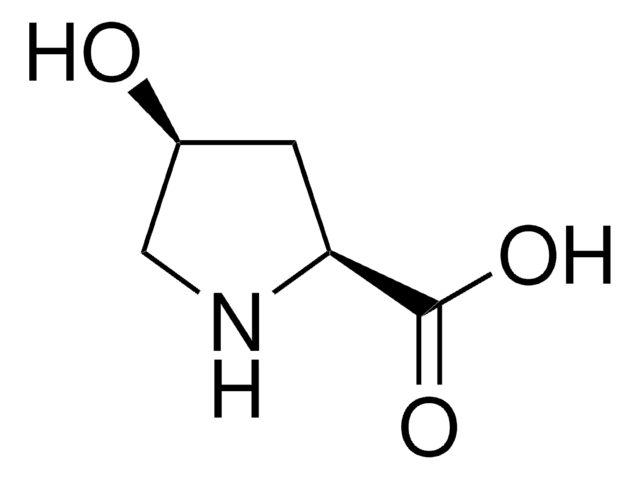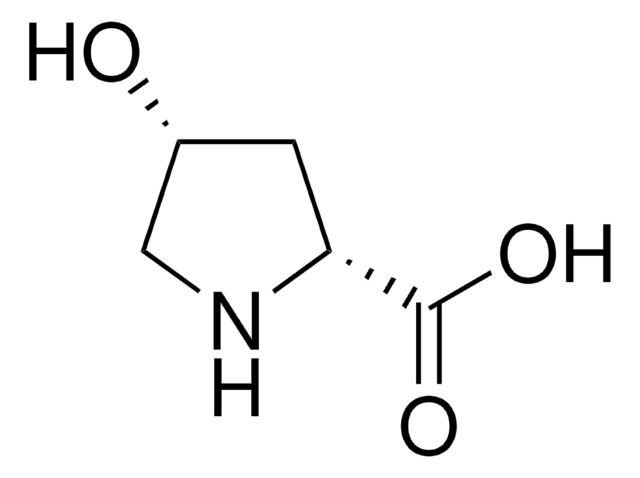H54409
trans-4-Hydroxy-L-proline
≥99%, for peptide synthesis
Synonym(s):
(2S,4R)-4-Hydroxypyrrolidine-2-carboxylic acid, Hyp
About This Item
Recommended Products
product name
trans-4-Hydroxy-L-proline, ≥99%
Quality Level
Assay
≥99%
form
crystalline powder
optical activity
[α]25/D −75.6°, c = 1 in H2O
reaction suitability
reaction type: solution phase peptide synthesis
color
white to off-white
mp
273 °C (dec.) (lit.)
application(s)
peptide synthesis
SMILES string
O[C@H]1CN[C@@H](C1)C(O)=O
InChI
1S/C5H9NO3/c7-3-1-4(5(8)9)6-2-3/h3-4,6-7H,1-2H2,(H,8,9)/t3-,4+/m1/s1
InChI key
PMMYEEVYMWASQN-DMTCNVIQSA-N
Looking for similar products? Visit Product Comparison Guide
General description
Application
Other Notes
Storage Class Code
11 - Combustible Solids
WGK
WGK 1
Personal Protective Equipment
Choose from one of the most recent versions:
Certificates of Analysis (COA)
Don't see the Right Version?
If you require a particular version, you can look up a specific certificate by the Lot or Batch number.
Already Own This Product?
Find documentation for the products that you have recently purchased in the Document Library.
Our team of scientists has experience in all areas of research including Life Science, Material Science, Chemical Synthesis, Chromatography, Analytical and many others.
Contact Technical Service





